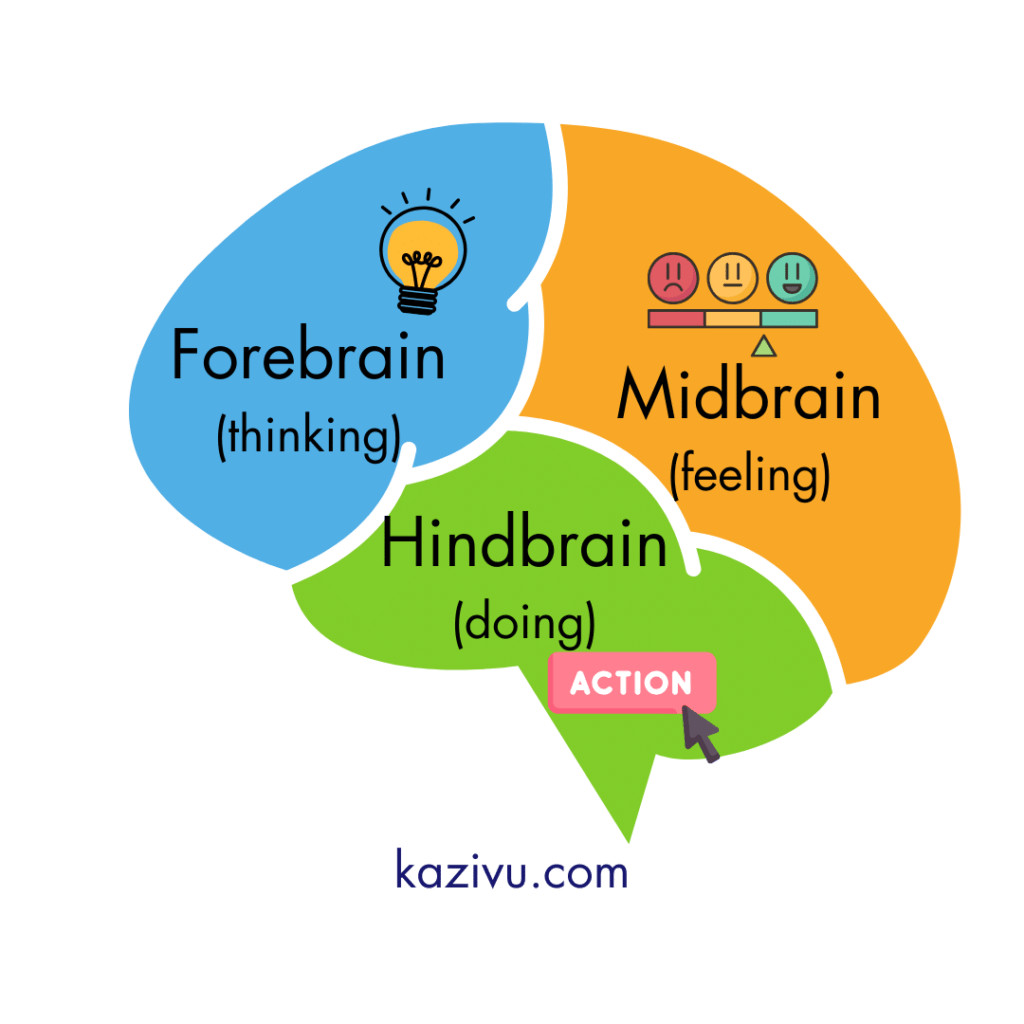If there is one thing, just 1 thing that you could do to set your teen up for success: help them fix their sleep.
I am not even slightly exaggerating when I say that the quality of your child’s sleep determines the quality of their life.
There is so much evidence to support the essentiality of sleep to live a happy and successful life. In this post, I will share these findings with you in simple, easy-to-understand terms.
So what does research say about sleep?
What happens when your teen does not get a good night’s sleep?
Before we dive into this, let me quickly walk you through some basic concepts of Brain Anatomy. It will help you understand this post a lot better. I’ll keep it simple, promise.
The brain has 3 main parts to it – forebrain, midbrain and the hindbrain. While they are all interconnected, they also have separate functions.

- The forebrain contains the Prefrontal Cortex that helps your teen to remember, solve problems, pay attention and make good decisions.
- The midbrain often nicknamed the emotional brain helps your child to emote – to feel happy, angry, sad, excited etc.
- The hindbrain helps your child to perform critical life functions like breathing and maintaining balance while walking.
These 3 parts need to work well and together for your teen to navigate their day-to-day tasks effectively.
So far, so good?
Now let’s get back to our main topic – what happens when your teen misses even as much as a single night’s sleep?
4 things happen.
Poor sleep impacts your teen’s:
I. Ability to regulate emotions

Poor sleep blurs activity in the midbrain (“emotional brain”). This can result in your teen struggling to keep their emotions in check.
How this can show up:
- Breaking into tears suddenly
- Getting irritated easily
- Aggressive behaviour
- Lethargic to study
- Impulsive eating
II. Cognition

Sleep deprivation dampens PFC activity (this is part of the forebrain). When PFC activity is suboptimal, your child will struggle to learn. New concepts will seem harder to understand, learnt knowledge will be difficult to access and overall cognitive capacity will be substantially reduced.
How this can show up:
- Daydreaming during class
- Zoning out in the middle of a conversation
- Difficulty in focusing
- Poor attention
III. Decision-making abilities

When running low on sleep, your teen is more likely to make high-risk, high-reward decisions e.g. gambling. This is because when the brain is deprived of sleep, it can hyperfocus on rewards and neglect losses.
How this can show up:
- Impulsive behaviour e.g. storming out of the house in anger
- Skipping studying
- Missing workouts
- Sleeping late for several nights in a row
- Binge watching shows through the night
IV. Physical health

Our brain and body are intimately connected and therefore what affects one affects the other. Studies show that even 1 night of poor sleep can lead to an increase in blood pressure the following day.
Unhealthy sleep cycles also mess with our hormones and appetite. Your teen may feel hungrier than usual which can lead to overeating (late night snacking is a classic example). Poor sleep also increases the level of cortisol, a hormone usually associated with stress and retention of body fat.
How this can show up:
- High B.P.
- Increased appetite
- Intense craving for junk and high-fat, high-sugar foods
- Weight gain
- Eye strain
A word from Kazivu
Teenage is a period when your child’s body and brain are developing rapidly. This means that teens need more sleep than adults. At least 8-10 hours of sleep is critical for healthy development during teen years.
Please do not underestimate the importance of high quality sleep for your teen’s health and productivity. It makes the biggest difference of them all.